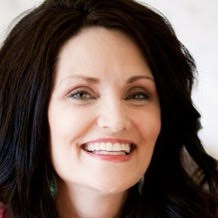Do you struggle to stand up for yourself? Can you stand up to your mom, mother-in-law, stepmother or another woman in a position of authority? Have you ever let someone get away with being rude or unkind to you and… you say nothing?
Does your mother, mother-in-law, or stepmother criticize or put you down habitually? Perhaps she is always putting you down, giving you back-handed compliments, or simply putting you on the spot with her implied criticism.
If your mother habitually criticizes you, will you stand up for yourself? Will you say something or swallow this one …yet again? If you remain silent, do you kick yourself afterward? If you let them “get away with it”, why should anything change?
If this sounds like you – I have help for you here.
Watch below-
If you would rather read-
So many daughters in the role of “good daughter” remain silent when a hostile critical comment comes their way. The barb, the swipe, is leveled at them, and they freeze. The “good daughter” is programmed not to rock the boat and to smooth things over. Yet, she knows deep down she goes against herself by remaining silent. If this sounds like you, let me break down what is happening. The problem with not speaking up for yourself is that resentment builds & erodes your self-confidence. You remain conflicted and have a hard time trusting anyone. When you let resentment build over time, you worry you will blow up if you speak your mind. How do you address hostility that comes your way without losing your cool or playing doormat? Let’s come into the moment – when you need to confront hurtful behavior. You might respond like this-
“You know, that was really hurtful. I’m not sure you meant to hurt me, but that’s how it came across. Could you tell me why you want to say that?”
If you’re met with silence, you might’ve just taken the other person off guard, or conversely, you might have called them out on their hostility. When you are habitually bullied by another woman, she is counting on you to remain passive. If the comment wasn’t intended as hurtful, then she has a chance to regroup and say something along the lines of-
“Oh, I’m so sorry. What you felt isn’t what I intended. Let’s talk about it”
By bringing up what was hurtful and hearing a response, you can tell quite a lot. Whether you get a thoughtful response, silence or a hostile defense,
Here is what you can know for sure-
No matter what the outcome, you’ve stood up for yourself in a way that’s direct, kind, and compassionate. When you stand up for yourself, the people in your life will sit up and take notice. You aren’t merely being good. This is good. Good for you. Stand up for yourself and let your voice be heard.
To find out if you are caught in the Good Daughter trap- go here.
Raise Awareness. Tweet It Out!
When you stand up for yourself the people in your life will sit up and take notice. Share on X When you let resentment build over time you worry you will blow up if you speak your mind. Share on X The problem with not speaking up for yourself is that resentment builds & erodes your self-confidence. Share on X When you are habitually bullied by another woman, she is counting on you to remain passive. Share on X
DO YOU EXPERIENCE THE "GOOD DAUGHTER" SYNDROME?
Do you have a Narcissistic or Difficult Mother? Are you the "Good Daughter"? The Rebel? or The Lucky One? Take the quiz and find out!






Just wanted to say, again, how much I am getting from your blog.
Just as you said, my mother counted on me being passive, whatever she did or said to me. She could get away with anything and if I made the slightest protest, she would withdraw and leave enabling father to smooth things over.
On our final meeting, I asked her very politely why, on two successive evenings, she made my twelve year old daughter eat large meals, despite her having been very ill with a stomach bug for the previous four days. Each time she was forced to eat, she was sick again. I wasn’t present but I don’t think I would have stood up for my daughter any more than she was able to stand up for herself.
I queried this behavior calmly, but mother stood up, saying she couldn’t believe what she was being accused of, and left. That was six years ago and I have not seen my parents since. I didn’t actually get to the point of accusing her of anything.
I do wonder if she finally realised that the game was up and I wouldn’t passively accept her abuse of me and my children any more. Consequently, she wouldn’t risk any contact with me ever again.
Making someone eat when they are ill seems abusive to me. She did this to me as well, on many occasions and I hated her for it. What I struggled with is the fact that some people might not see her behaviour as abusive at all. A big part of my recovery was accepting that if it felt wrong to me and my daughter, then it was wrong, no matter what other people may believe. So I feel I not only stood up to her but also to society. After all, society says mothers only act in the best interests of their children and grandchildren. I may be completely off the mark with all of this, but it has helped me make sense of my life and to heal.
Thank you again for giving me a voice.
Thank you, Angie, for sharing your painful story. I plan to write more about mothers and food. I think a lot of dysfunction gets played out around food issues. Forcing yourself on another person (or your offerings)I would agree is always abusive at its heart.
I am a young latina first generation woman in my early 20s and I felt alone in feeling this way towards my mother. My mentor brings up I need to be confident and stand up for myself but I was never able to find out why. This explains so much and has been a huge revelation for me. I am finally getting therapy soon to uncover more of this and feel a weight off my shoulders that this happens to other women. I am so glad I realized this now and will be reading everything from your website.
I do have a question as to why does this happen to the girls more than the boys. I am the oldest sister and have two younger brothers and I feel I am the one who cares more and my mother is more on me than them. Not only do I get resentment from my mother but also my brothers.
I am in tears with a mix of joy with finally putting a finger on how I feel and sadness for letting this emotional abuse happen. I am now a college graduate and want to start making changes for the better.
Again Katherine thank you for creating this space and keep doing what you are doing. I recommend creating an Instagram and Tiktok to spread this message because I know many young people especially first generation students feel this way.
Hi Andrea- Thank you so much for reaching out to me.
You are definitely not alone in this feeling… or mix of feelings. Although everyone’s story is a bit different, there are patterns that describe much of what you describe.
To your question, I hear how sons are treated differently… all the time. I believe it is three-fold. Firstly I believe women have been devalued in the culture and or rather their value is tied up in nurturing and caregiving rather than being encouraged to break away to pursue their own dreams.
Also difficult mothers in general are likely to appropriate one child and hold them to a different standard. Cultures who have been more patriarchal tend to expect oldest daughters to play this role.
Also frequently it gets passed down from generation to generation – a daughter is appropriated and then she expects to appropriate her daughter.
It certainly doesn’t make it right, but it does make it real. I love the way you in the younger generation are wanting and expecting more for yourselves.
Having said that, it is hard to break a cycle, really hard… but that the way change happens- one brave, Good daughter at a time -rewriting for herself and others what it means to be good.
It sounds as if you are well on your way to making this happen. I am honored to be able to support you on your journey.
Read all the blogs, take the quizzes and soak it all in.
I’ll be cheering you on!
Take care,
Katherine
P.S. thanks for the tip about instagram and tik tok- I’ll work on that.